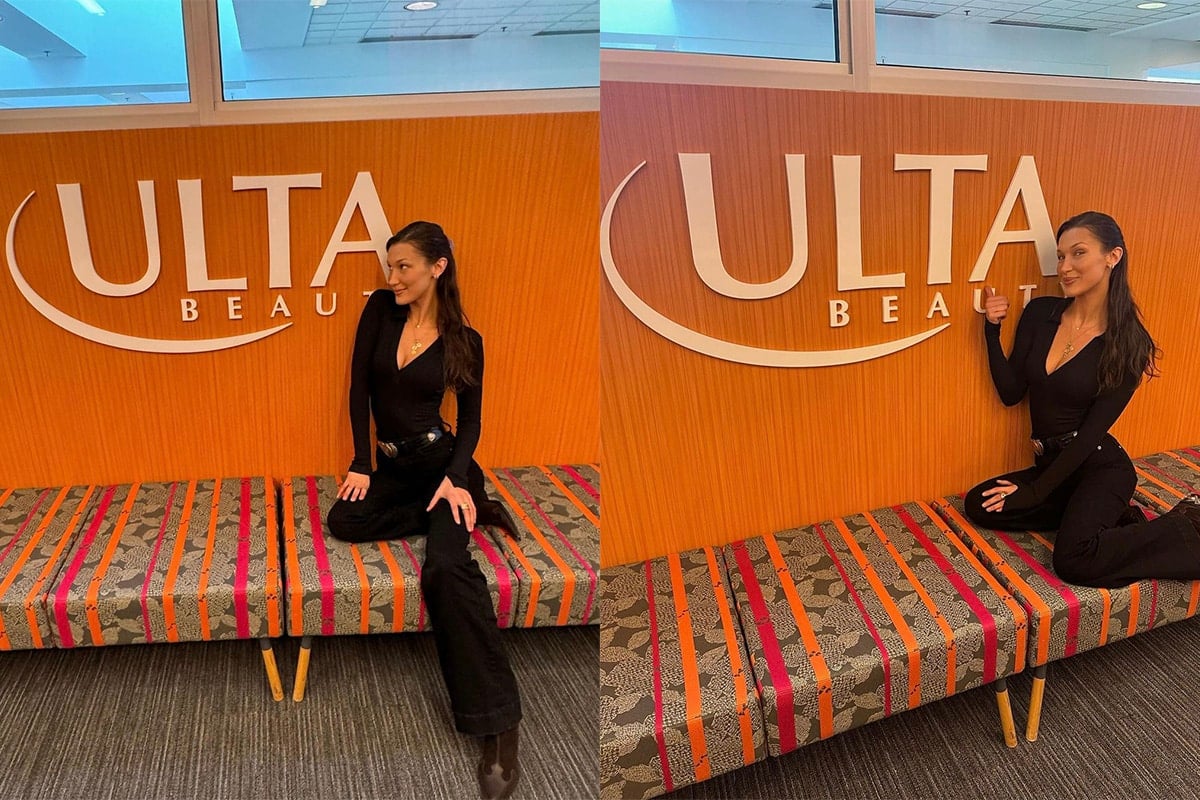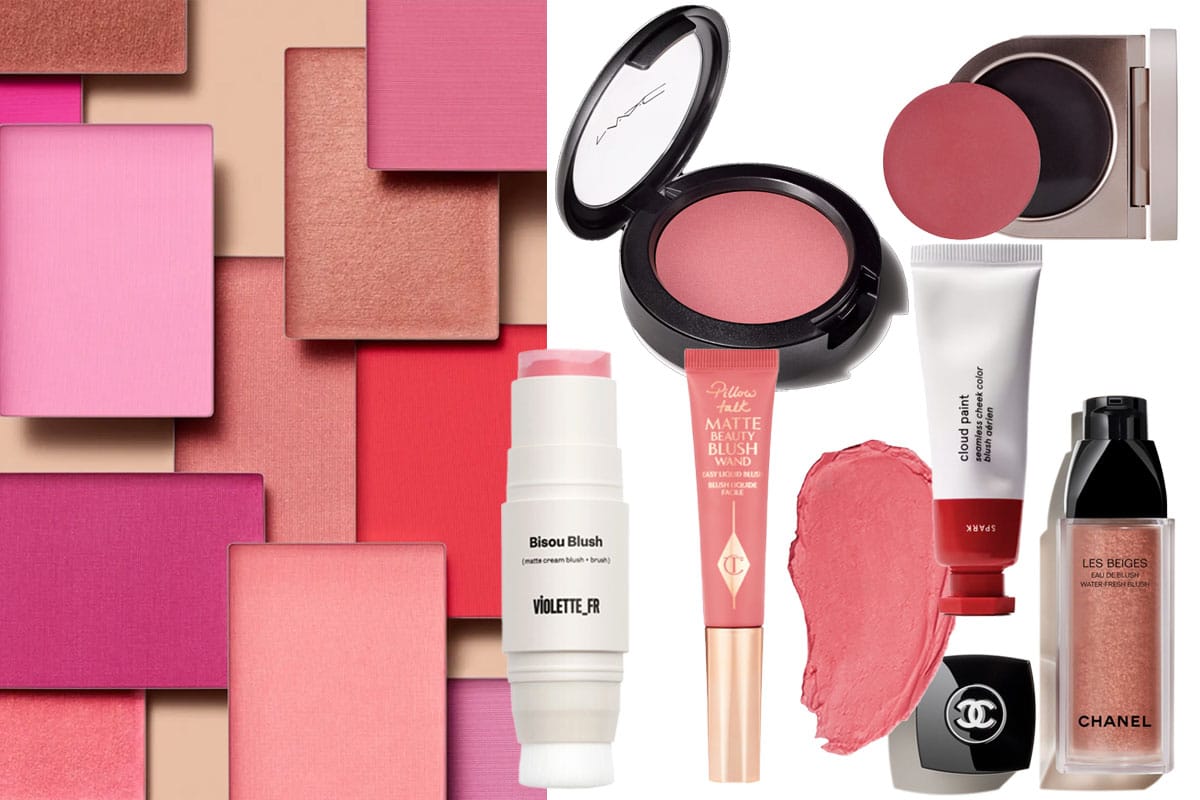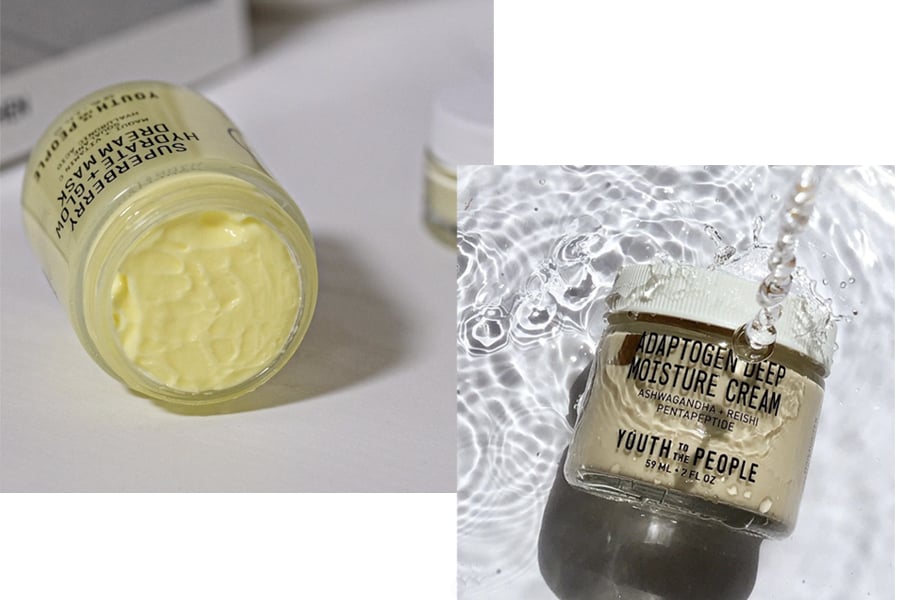
You could say the origins of California-based skincare brand Youth to the People come from a small hair salon in the 1970s.
Eva's point of difference at her 13-chair salon was the plant-based haircare that she imported from Europe. But when her husband left her, the business was in trouble. It was the 70s and you couldn't import products for a business without having a man involved to sign, service and guarantor the arrangement. But Eva wasn't giving up that easily. She decided to make her own plant-based products instead.
Now 50 years later, Eva's grandchildren are carrying on her legacy. Joe and Greg founded clean beauty brand Youth to the People with the knowledge and spirit imparted to them by their grandmother. A firm belief in the true power of botanicals, the duo have embarked on a journey to discover the "most exciting plant extracts and plants that we can find on the planet" in order to create their unique skincare formulations.
Here, we chat with Joe and Greg to discover their favourite plant-based ingredients, the best business advice they've ever received and why we should be excited about their new vitamin C serum.
Tell us about your latest product, your vitamin C serum
Joe: Our newest product is our 15% vitamin C + clean caffeine energy serum. And it's really the culmination of a few years of work, trying to put together the best vitamin C product out there. You know, vitamin C is such an important ingredient in your everyone's skincare routine, from protection to anti-ageing benefits, to how it evens out skin tone - it has so many great benefits.
We wanted to make a serum that allowed you to get an a high concentration of vitamin C, but a really safe, consistent level that allowed for all skin types to use it and not cause reactions. But importantly, be consistent within the level of vitamin C dose throughout the lifetime of the product. So and then pairing that with our clean caffeine blend, which is yerba mate and guayusa. That gave us this extra kick. We love what caffeine can do for the skin and how it activates your skin's microcirculation. That benefit of the caffeine combined with the vitamin C really just makes this beautiful pairing of activating your skin, waking it up, so to speak, and then giving you all that great radiant and brightening from the vitamin C. It's a really good combination to pair together and something we hadn't seen before. And we're really excited about doing it.
It has a one year shelf life, two years from manufacturing, but one year shelf life. The reason for that is a couple things. It's a specific blend of three different specific forms of vitamin C, that are encapsulated and super stable. They're activated within their encapsulation. Once it touches human skin, because the pH of your skin dissolves the encapsulation, the vitamin C then penetrates into the skin. Secondly, it's in our glass. Amber glass is about 30% uv reduction, we actually added a UV coat to the outside of the class to reduce the UV down to 99% reduction. So that makes it a lot more stable and safer from UV lights and other things which can degrade vitamin C over time.
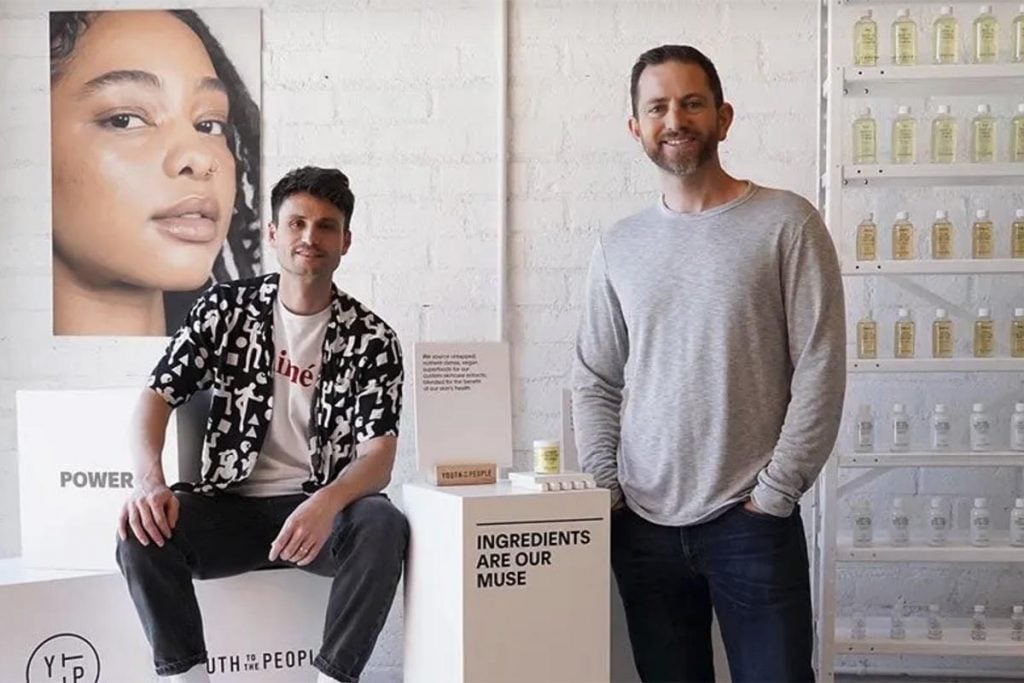
Do you consider yourself a clean beauty brand?
Greg: Yeah, we definitely, we definitely do. What we do, we have our own mentality and guess understanding about what that then means to us. And we really do think it's the best of plants and what nature has to offer, but it also is cosmetic science and we think it's, you know, bioidentical synthetics are clean. And we think plant extracts are clean. You know, we don't take the whole, "natural, safer and better". We do we believe "clean" is something that we identify with, but more on the both sides of that. We're really are passionate about educating around that. We believe in safe preservative systems, and, you know, chemical is not a bad word.
But we do say ingredients are our muse, that's something that drives our brand.
That's why we search for the most exciting plant extracts and plants that we can find on the planet. We found yerba mate, our cleanser started with kale. We're definitely very passionate about that. But from the formulation side, science is a big part of what we do.
What would you say to anyone who says that plant-based products aren't as effective?
Joe: I would say that that's just not true. And there's a ton of amazing plant-based ingredients that are truly effective on the skin. When formulating products, it's all about the right ingredients, at the right time, at the right percentages, and how those are all blended together to create truly effective skincare.
And we've always been, that's been our family motto from day one, our grandmother was all about the most effective products. And through her research research, and this is in the late 70s, early 80s, it was plant-based even then. Botanical extracts, even then. It has nothing to do with what's natural or not, it's what is the best for the skin and what's going to do the most. Just be the most effective, and so that drives us every day and we look at the best from plant-based and we look at the best from cosmetic science. Some of that is bioidentical to these plant-based ingredients, but they're made in the lab because it's more sustainable that way it's more consistent that way. So you know, there's a combination of what science can bring us through nature that is super impactful.
What are some of your favourite skincare ingredients to use?
Greg: Anything that packs a serious antioxidant punch. So your green leafy ingredients, superfoods like kale, spinach, alfalfa. But then the berries, maqui being the most antioxidant rich berry in the world, then acai, goji. Then the other leaves that become sort of teas, kombucha, black teas are really antioxidant rich, amazing for the skin. And then yerba mate and guayusa, which also kind of fit a little bit under that category. Anything that has a tonne of antioxidants and phytonutrients that we're on the search for and we love.
We know that sustainability is important to your brand. Is there anything you think individuals can do to propel a more sustainable future?
Joe: I think the first thing it starts with is just understanding and belief that things can get better. There's always progress that can be made, and no one is going to be perfectly sustainable. At the end of the day, it starts with the individual. Big corporations are going to do things. But it starts at the individual level, and more and more brands like ourselves that are pushing what our sustainability initiatives are, that are trying to get better every day, every year that we're not perfect.
We've got plastic in some of our products that is virgin plastic. We're not perfect, either. We've got we're shipping glass across from the US to Australia, you know, that's emissions there. So how do we fix that? There's a lot of things we need to do. But as each brand takes on those challenges, and the consumer recognises that, and shops with those types of brands that will start to change.
I definitely believe it's one of those things where everyone has to believe that the change is needed.
Greg: I think that education is a big part of it. And, you know, the other aspect is just slowing down just a little bit. Thoughtful consumption, thoughtful creation by brands, like ourselves. That's why we don't launch a tonne of products, we put our heart into every single one. You look in beauty, and I think there's some really cool conversations there. How many products do we need to be buying a year? How many do we need to be making? How many clothes do we need to be buying? Do we need to buy a bunch of fast clothes? Or can we buy more quality stuff that lasts longer? That type of mentality. How do we how do we change our diet?
Maybe it's not perfect, but how do we get a little bit better each day? I think, being conscious and thoughtful at every touch point that we can will collectively add up.
Why did you choose to make sustainability one of your brand pillars?
Joe: We have a brand pillar, "one world to protect", and at the end of the day, it's something we always believed growing up. Part of that on us, we've got to reduce our impact. Back in the 80s and 90s, it was like, just start recycling - th basics, right? And then it's evolved. We approach sustainability, same way, we approach everything, we're always going to get better at it. But it's important because it's not just us, but who's after us, our kids, our kids, kids etc. You know, there's one planet that we all have to share together. And it's important that we do our best to minimise our impact and make a difference.
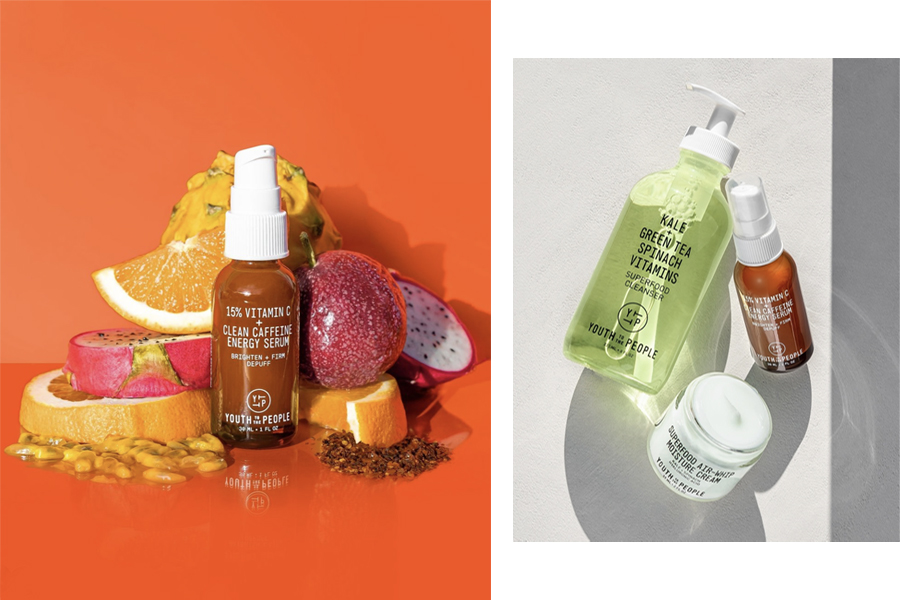
What is the best business advice that you've ever received?
Greg: One of them is "learn how to say no". That could be saying no to yourself, when you have a bunch of ideas and being able to focus in on maybe the one you're most excited about. You get a lot of opportunities, when we first got the brand and got some momentum going, things come in, and opportunities come in - and you can lose your focus. And they might not be the best thing that you need to be working on at that time.
But you're so excited about everything that you're like "yes, like, I'll do that. Yes, I can do that. Yes" and then next thing, you know, you're spread so thin, you can't really focus on the thing that maybe is what you do best, or what you're most passionate about. What you're most passionate about is what the world and the community are going to resonate with. So I think that's been a big one.
Joe: I would say the other one would just be for us, trusting our gut. Our instincts have gotten us, as a business this far. We have a lot of ideas that we want to continue to push forward with, but as your businesses grow people from all over have ideas and opinions on what you maybe can or can't do. You always want to hear it, because there's a lot of great advice that comes in. But if it goes against something within your gut and your belief of the company that you've built, there's a reason for that. No matter who the advice is coming from, you gotta trust your gut.
What do you wish people knew about skincare?
Joe: We really wanted to build something very simple to for anyone . For the active driven, like, go get it lifestyle, like, "hey, here's a cleanser, serum and cream", there's a very simple product line to step into. If you're not sure, maybe you've only been using like body wash for your whole face and body. Or maybe you've just been using the same stuff you buy at the drugstore for the last 10 years, because that's what your parents told you - whatever that may be. So it's a simple way to step into skincare. And it's not that complicated. As you get into it, there's more and more great products out there. But skincare is not that complicated. That would be the number one thing, I would want to say you can start very simply and build a routine over time.
Tell us about your origin story. Why skincare?
Greg: So Joe and I are cousins. It's a family company. It started with our grandmother, her and our grandfather moved from the East Coast in the US to just outside the Bay Area, and started a hair salon in the 70s. And it was two chairs. And they built it up to 13 chairs, which was like a huge salon at the time. Our grandmother became obsessed with skincare and started to import a brand from Europe, when she was in her 50s. And then in her 60s, our grandfather actually left her. They had seven kids, six daughters.
When she got divorced, and he left, she no longer could actually be the importer for this line. Because in the 70s, you needed a man as part of your signature and contract, of course. So she couldn't she couldn't do that any longer. But being the kind of entrepreneurial spirit that she had, she saved up to finally have this Porsche that she loved. But, she sold her car and she decided she was gonna start skincare line. She traveled back to Germany, worked with the chemist and created her first line. Europe really was on the forefront of botanical skincare, and mixing that with science and so, we grew up around botanical extracts and the power of plants. She didn't use the word clean. But what today is kind of known as "clean" is what we grew up in. Mixing those with clinical actives and cosmetic science being a big part of the formula.
We grew up in it, since we could walk, we were in a skincare business or my mom's hair salon. You end up learning a tonne about ingredients and the industry. We knew what hyaluronic acid was in year 10. And you know, that that's not normal until we got a little bit older and realised. Joe's jokes, but his college roommates, would say "what are all these products are bringing", "what is actually happening in your bathrooms at the time". It not normal to have 20 skincare products in a bathroom. Definitely no one else had it.
After school we did a couple of different things and ended up working for the family business. And really started to dream about building our own brand. In the midst of this eight years of learning the industry in the professional side, we eventually came to the opportunity to start building this new idea.
Images: Youth to the People

